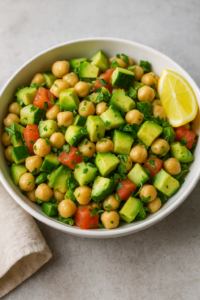
If you’ve recently been diagnosed with Type 2 Diabetes, you are probably thinking quite a bit about more about your health. Maybe you feel lost, or like you don’t feel like there’s much that you can do about your health. Or, maybe this has encouraged you to monitor your diet and exercise more closely. Either way, with some of these healthy tips, you can do what’s best for your Type 2 Diabetes without it taking up too much of your attention.
Check out these related articles, too:
Does protein increase blood glucose levels?
How Does Diabetes Affect My Teeth and Gums?
What is the best way to manage diabetes?
What foods can diabetics eat freely?
A Note On Diabetes
Before we get into the article, it might be important to clear something up quick. Type 1 Diabetes is similar in many ways to Type 2 Diabetes. The big difference is that Type 2 Diabetes is usually caused by poor diet and exercise, so in most cases it can go away with hard work. While most of the information in this article will also be useful to people with Type 1 Diabetes, there’s no known cure for it.
Know Where The Carbs Are
Managing Diabetes is largely about monitoring your carbohydrate intake. If you are just now starting to watch out for carbs, it can seem like carbs are everywhere. Getting to know more about carbohydrates and where they come from can mean that you don’t always need to read the label, or even that you can find something to eat when there isn’t any packaging, like at buffets and restaurants.
Some foods, including eggs, meats, most cheeses, and most vegetables have virtually no carbs. As for drinks, you’re basically limited to water, coffee, tea, and diet sodas. Milk, regular soda, fruit juices, and alcoholic beverages all have carbs.
Know How To Find Them
You should also know that carbohydrate information isn’t only on the nutrition label. There are other ways to find that information out as well. For the last couple of years, Allen Borushek has been compiling The Calorie Fat and Carbohydrate Counter. Your doctor might have told you about it, or even given you a copy. The book works kind of like an encyclopedia that tells you all about the nutritional content of food, including things that don’t usually have nutrition labels, like fruits and vegetables. If you don’t feel like hauling the book around or if you leave it at home, a lot of the information and a handy calculator are also available online. You can even look up food from your favorite fast food place.
On the topic of fast food places, you should know that they need to have nutrition information on hand. Some places give the information out printed on a place mat, but at other places you just need to ask while ordering or picking up your food.
Monitor Your Activity
Of course, food isn’t the only part of managing your diabetes. Exercise plays an important part in managing your diabetes. If you have Type 2, exercise can even help to make your diabetes go away.
Diabetes has to do with how your body processes carbohydrates, which changes the amount of sugar in your blood. Different activities take up different amounts of carbohydrates, and so can change your blood sugar levels.
If you have trouble with high blood sugar, staying active will cause your body to use more energy and bring your blood sugar down, while not doing so much might lead to your body not using as much energy and leaving your blood sugar levels high.
Know Your Signs
It’s not only important to understand how activity effects your blood sugar, but how that makes you feel. There are some general symptoms of high and low blood sugar, but everyone is different, so try to keep track of how you feel at different levels so that you won’t need to check your blood sugar to know when something is off.
Enjoy the Taste and Benefits of Diabetic Foods
Will The Mulberry Leaf Help Your Diabetes?
Vitamins and Herbal Supplements in Type 2 Diabetes
People with low blood sugar may feel drowsy, confused, or irritable. If your blood sugar gets too low, it can cause some serious problems, so check your levels and eat something sweet if you start to feel off.
People with high blood sugar may feel very energetic, or they also might feel sick. Having high blood sugar isn’t as urgent as having low blood sugar on the short term, but on the long term it can lead to damaged nerves and blood vessels, so it’s best to try to keep it down.
Diabetes requires close management to stay under control, but that doesn’t mean that it has to be particularly difficult. It may seem bad now, but as you learn to navigate the balance of carbohydrates and activity, it can become second nature.



 Protected by Patchstack
Protected by Patchstack